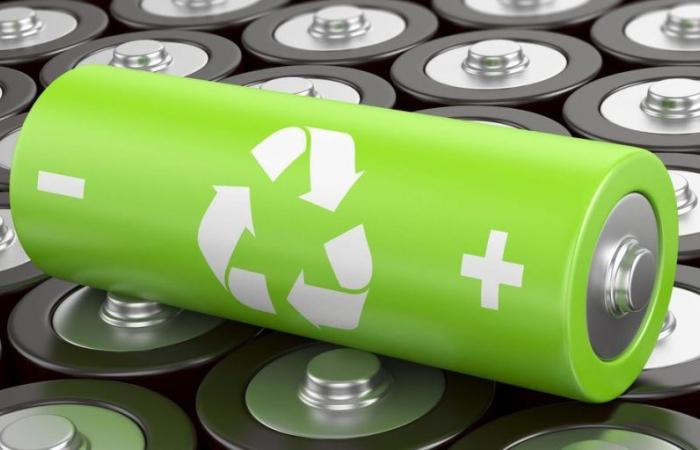Experts in battery recycling pointed out in Madrid the challenge that the treatment of lithium batteries and the effort and resources that many companies are making to guarantee the existence of recycling solutions for this hazardous waste.
During the III Circular Economy with Purpose Conferenceorganized in Madrid by the Circular Economy division of ILUNION, the future of lithium battery recycling was addressed, as support for the electric mobility model and after the approval of the EU regulation 2023/1542, of July 12 (, relative to batteries and cells and their waste.
The meeting was inaugurated by the commissioner for the Circular Economy of the Ministry for the Ecological Transition and the Demographic Challenge, Alejandro Dorado, who stated that “the Circular Economy is called to create new markets and new lines of business linked to ecodesign, reuse, remanufacturing and recycling. Also to improve traceability or servitization. At least 70,000 new jobs will be created by 2030 in Spain. And the Circular Economy PERTE will be key to this, endowed with almost 500 million euros and a specific line for renewable energy equipment, among which are batteries,” he added.
Common regulatory framework
Representatives of companies and administrations analyzed the challenges and opportunities of recycling this equipment, “in addition to the need, on the one hand, to match the supply of recycled raw materials with the demand for them and, on the other hand, ensure a common regulatory and technical framework in all member states”, as pointed out by the general director of ILUNION Circular Economy, Pedro Antonio Martín.
“Recycling lithium batteries“he added,”will guarantee both the sustainability of the electric mobility model and the generation of new jobs. It is encouraging to see all the effort and resources that are being put in by different private initiatives to promote this activity.”
ILUNION has opted for a recycling solution for lithium batteries with LFP (lithium ferro phosphate) technology for being the most widespread among oriental manufacturers, whose products are achieving greater and greater penetration in the market. “Our process will not be limited to extracting the Black Mass to sell it to a third party, but we will go to its final processing, extracting the materials that compose it with sufficient purity to reintroduce them into the market and can be used to manufacture new batteries” Martin explained.
The ILUNION lithium battery treatment plant will be located in the Boecillo Technology Park in Valladolidwill have a treatment capacity of 6,000 tons of these batteries per year and will create between 30 and 40 jobs.
Towards a new sustainable energy model
For Toni Massot, head of Urbaser’s Novolitio project, “the recycling of used lithium batteries, as well as the waste from their manufacture, is an new environmental challenge that we must attend to as a link essential to achieve a transition towards a new energy model in order to make it sustainable.”
He stressed that the new mobility model associated with electric technology that we are promoting cannot be carried out “at the cost of depleting resources or displacing its environmental and social impact to other latitudes in which the population cannot defend itself against possible situations of abuse of power.” ”he added.
Therefore, as Raúl Yuste, Global Key Account Manager Battery Recycling at BASF, points out, the battery recycling industry needs to grow significantly to achieve ambitious net zero emissions goals in Europe and meet market demand.
“It is important to establish the entire value chain in Europe to be fully competitive. To do this, we need to considerably increase capabilities in Europe, a strengthening of the regulatory framework and a stronger vision on sustainability as a true European differentiator,” he noted.
In his opinion, this is a critical moment for the industry. “When the financial risk is greater, The European battery industry needs pragmatic, creative and urgent support. Therefore, we encourage policymakers to simplify the regulatory framework necessary for the industry and prioritize investment support to carry out large industrial projects. This will create a tangible business case for the industry, which is currently much stronger outside Europe,” he noted.
Anticipate the takeoff in electric vehicle sales
For María Jesús Kaifer, Technical and Development Director of FCC, the take-off in sales of the electric vehicle “has to be accompanied by the development of lithium battery recycling plants.” In this sense, she added, “FCC’s commitment to recycling the components of the energy transition is complete and covers all renewable energies. This path towards a true circular economy is part of the environmental axis of our 2050 Sustainability Strategy.”
In the second round table, cases of good business practices in the Circular Economy were explained, such as those presented by Nacho García-Valdecasas, Global Lead of Sustainability Shopping at Amazon; by Francisco Botía, general director of the Inserta Innovation Foundation; by Juan Meijide, general director of Insertega; and Raúl Espinosa, general director of SQRUPS. The meeting was closed by the Deputy Minister of Environment and Territorial Planning of Castilla y León, Rubén Rodríguez.






